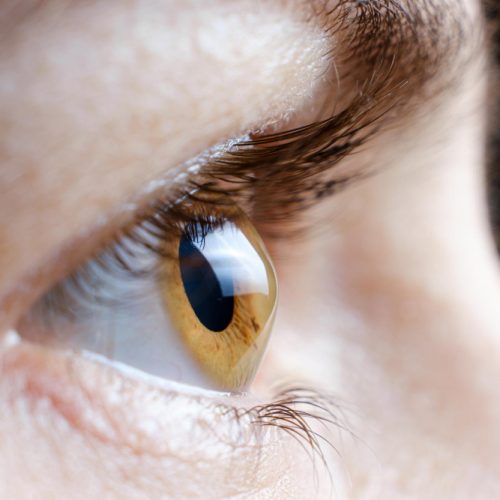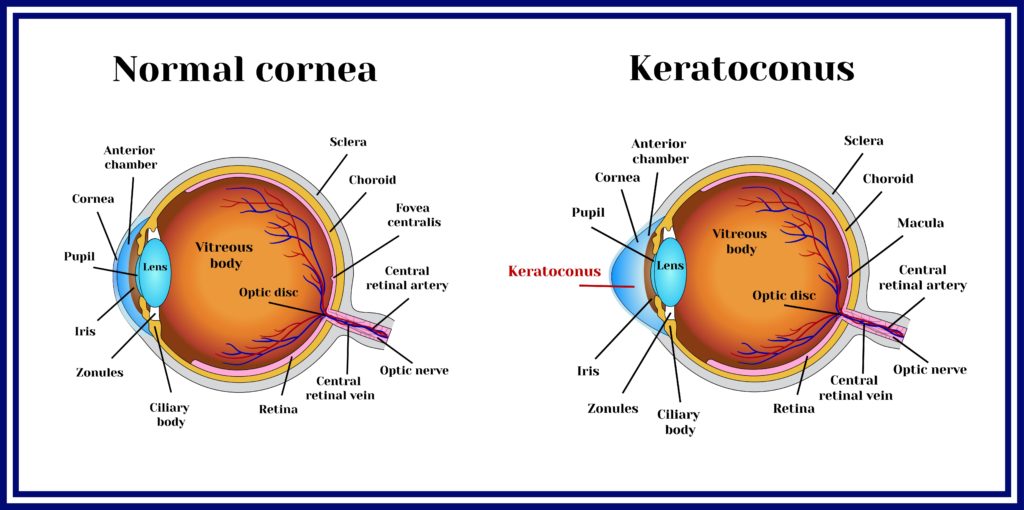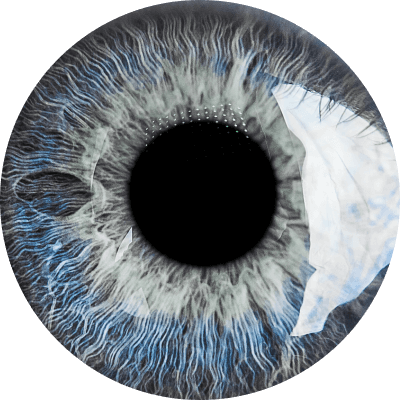
What is Keratoconus?
Keratoconus is an eye disorder marked by progressive thinning and bulging of the cornea, leading to distorted vision. Symptoms include blurred vision, light sensitivity, and frequent changes in prescription glasses. Surgical interventions like corneal cross-linking or transplant may be necessary in advanced cases.
Precision Vision, located in central London, offers personalised eye care led by Dr. CT Pillai. Prioritising quality over quantity, our renowned surgeon ensures tailored care for optimal outcomes. Experience freedom from glasses with our expertise in laser eye surgery, addressing conditions like keratoconus.
Surgery Prices starting from just £89.58 per eye/month.
with a £250 deposit for 24 months
About Keratoconus
What is Keratoconus?
Welcome to Precision Vision, your trusted destination for comprehensive eye care. Explore our insights on Keratoconus, a condition impacting the cornea, the eye’s crucial “window.” Our expert team at Precision Vision is dedicated to providing valuable information on this progressive degenerative disease.
Derived from the Greek words ‘kerato’ (cornea) and ‘konos’ (cone), Keratoconus affects approximately one in every 2000 individuals. This condition initiates during the critical ages of 10 to 25, often starting in one eye and progressively impacting the other. The cornea undergoes thinning and bulging, assuming a cone shape and compromising its stability, leading to distorted vision.
Although the exact cause remains unknown, studies suggest a hereditary connection, with a propensity to run in families. Chromosomal and connective tissue disorders are strongly associated with Keratoconus. Individuals with atopic conditions like eczema, asthma, and hay fever may be at an increased risk. The symptoms of these conditions, such as eye rubbing, can accelerate the progression of Keratoconus. Additionally, factors like trauma, poor-fitting contact lenses, and excessive eye contact can contribute to the severity of the disease.

Precision Vision is committed to offering personalised care for Keratoconus patients. Explore our comprehensive solutions to address this condition and regain clear vision. Trust Precision Vision for expert guidance and advanced treatments tailored to your unique needs.
What are the Symptoms of Keratoconus?
Welcome to Precision Vision – Your Leading Keratoconus Treatment Clinic on Harley Street
Keratoconus is a progressive eye condition that leads to an increase in corneal steeping, causing thinning of the cornea and resulting in complex high prescriptions with irregular corneal astigmatism. This condition can significantly impact lives, leading to blurred sight that often progresses to ghosting or monocular diplopia (double vision), difficulty seeing at night, sensitivity to light, fluctuations in prescription, and eventual unusability of glasses.
Symptoms in the early stages may include mildly blurred or distorted vision, increased sensitivity to light and glare, and eye redness or swelling. During this phase, glasses may be effective in correcting vision, and special hard contact lenses can assist in restoring proper focus for those who typically wear contacts.
As Keratoconus progresses, increased nearsightedness and difficulty finding glasses to correct prescriptions may occur. Sufferers may transition to hard, rigid, or gas permeable contact lenses, which can be costly, uncomfortable, and unsuitable for extended wear.
While the condition typically progresses slowly, in some cases, it can worsen quickly, manifesting in increased blurriness and distortion in vision. Left untreated, Keratoconus can stabilise after impairing vision significantly or continue progressing to the point where a corneal transplant becomes necessary.
Given the critical role of vision in daily life, addressing the root cause of these symptoms is crucial. Our UK clinic, conveniently located on Harley Street, offers a range of advanced treatments for Keratoconus. At Precision Vision, we are committed to providing tailored solutions to enhance your vision and improve your quality of life.
Our experienced team understands the challenges posed by Keratoconus and offers comprehensive evaluations to determine the most effective treatment plan for each individual. From early-stage interventions with glasses or special contact lenses to advanced treatments for progressive cases, Precision Vision is dedicated to delivering optimal care.
Explore the transformative options available at Precision Vision and take the first step towards clearer, more comfortable vision. Don’t let Keratoconus hinder your daily activities – trust our expertise to guide you towards a brighter and clearer future. Visit our Harley Street clinic today and experience the Precision Vision difference in Keratoconus treatment.
Visual Rehabilitation
Keratoconus is a progressive degenerative disease that can affect both eyes causing the cornea to thin and become misshapen taking a conical shape. This causes complex prescriptions and if left untreated can lead to a corneal graft.
Precision vision offer total visual rehabilitation with treatments that halt the disease, makes contact lens wear more comfortable and corrects prescriptions, removing the dependency on visual aids.
Precision vision is one of the only clinics in the country to offer total visual rehabilitation for sufferers of Keratoconus by providing treatments to:
Suitability for this type of treatment will be determined at the consultation after comprehensive testing. Precision Vision’s leading surgeon, Dr. CT Pillai is a highly respected corneal specialist who is present throughout every patient’s journey and designs a personalised treatment plan to achieve the visual goals of every individual.
Price Guide
Consultation Fee – £150
This deposit is taken at the time of booking and is non-refundable
Manual Collagen Cross Linking – £2400 per eye
Cross linking with laser-assisted – £2700 Per eye
A deposit of £250 per eye is required when reserving treatment and is deducted from the final cost.
Corneal Implants (INTACS and Kerarings) – £2750 per eye
A deposit of £500 per eye is required when reserving treatment and is deducted from the final cost.
Specialist Keratoconus ICL – £4450 per eye
Distance correction for complex prescriptions with astigmatism. A deposit of £1250 per eye is required when reserving treatment and is deducted from the final cost.
All Keratoconus Rehabilitation Packages include:
Once the aftercare program has been completed, you will be discharged, however, it is recommended that annual check-ups are attended.
Treatments
Collagen Cross Linking
Collagen cross-linking is a revolutionary treatment designed to address keratoconus, a condition characterised by the thinning and bulging of the cornea
Corneal Implants
Corneal Implants are used to reshape irregular corneas making contact lenses more comfortable and can partially improve vision.
Kerasoft Lenses
Kerasoft lenses are tailor-made soft lenses designed for high/complex prescriptions and irregularly shaped corneas.
Correcting Residual Prescriptions
Once the progression of Keratoconus stopped there are treatments available to correct prescription caused by the disease.
Your 4 step Treatment Plan
Our approach revolves around prioritising your optimal well-being.
Prior to your consultation
Your first point of contact will be with Precision Vision’s highly trained and knowledgeable patient coordinators.
Treatment
On the day of your treatment, our clinical team will guide you through the process and address any concerns or questions you may have.

Consultation
At Precision Vision, we believe that it is essential to be selective to ensure that every patient has the best treatment to suit their visual and lifestyle needs which is why determining suitability is incredibly important.
Aftercare
Your aftercare begins immediately after treatment when you are taken to the recovery room to relax and, when you are ready to leave, our specialist nurse will examine you before you go home.
Why choose Precision Vision for Keratoconus treatment?
At Precision Vision, we stand as a foremost authority in providing advanced treatments for Keratoconus. Our comprehensive approach encompasses complete visual rehabilitation for individuals affected by this condition. We offer cutting-edge treatments designed not only to halt the progression of the disease but also to enhance the comfort of contact lens wear. Moreover, our specialised interventions extend to total vision correction, ensuring a holistic and effective solution for individuals grappling with Keratoconus. Trust Precision Vision for transformative treatments that address every facet of this condition, empowering patients towards optimal visual well-being.
Dr. CT Pillai, a distinguished corneal specialist with an unparalleled 30 years of ophthalmic expertise, stands as a beacon of knowledge in the field. His wealth of experience uniquely positions him to address the complexities of various ocular conditions. At the forefront of his practice are bespoke treatments meticulously crafted to rectify visual impairments and alleviate the discomfort caused by diseases. Dr. Pillai's commitment to personalised care ensures that each patient receives a tailor-made approach, providing effective solutions that go beyond the conventional for an optimal outcome in visual health and comfort.
Distinguished as one of the few clinics in the country to provide an exhaustive array of services for sufferers, we pride ourselves on offering a comprehensive suite of solutions. As specialists in our field, we go above and beyond by offering bespoke fittings for Kerasoft lenses, minimising the inconvenience associated with contact lens removal. Our commitment to excellence ensures that every patient receives unparalleled care, consistently surpassing expectations. At our clinic, the pursuit of optimal results and patient satisfaction is unwavering, making us a trusted destination for comprehensive and tailored solutions.
Keratoconus FAQ's
Keratoconus is a common bilateral corneal disease that occurs in more than 1 in 2,000 people. Keratoconus is a non-inflammatory eye condition in which the normally round dome-shaped cornea progressively thins causing a cone-like bulge to develop. As a result, the eye develops a high complex prescription with astigmatism. Keratoconus is not visible to the naked eye but is apparent in an examination by an optometrist and scans.
The thinning and bulging of the cornea typically causes myopia (short sight) and astigmatisms. It can produce symptoms like blurring, ghosting, multiple images, sensitivity to light, difficulty seeing at night (halos and glare) and a fluctuating prescription. In advanced Keratoconus, scarring and loss of transparency of the clear cornea can cause permanent poor vision.
Even though it is a degenerative disease there are patients where the disease naturally stabilises. This means that when a patient is over the age of 45 and have not required a corneal graft, their prescription is likely to have stabilised naturally. For those that the disease does not stabilise, it can mean the patient may need a corneal graft.
There is no cure for keratoconus and it cannot be treated with medication. In the early stages, glasses or soft contact lenses can be used to correct the vision. As the cornea continues to thin and bulge, more complex and custom-made contact lenses such as hard, rigid or gas permeable contact lenses can be used to correct the vision. However, these can be difficult to fit or tolerate. Contact lenses do not make the Keratoconus better or worse but improve your vision whilst wearing them.
Where the keratoconus is progressing, or for those who are at high risk of it worsening, Collagen Cross-Linking can be used to stop or slow down the deterioration. Once the disease is stable there are several options that will be offered to patients to either make contact lenses wear more comfortable (Corneal implants) or completely correct the prescription (Implantable Contact Lenses and Clear Lens Exchange).
Ultraviolet light and Riboflavin (Vitamin B2) drops are used to strengthen the cornea. The principal of Cross-linking is photopolymerisation. Riboflavin drops are administered to a de-epithelialised cornea and are activated by the UV light. The light-induced production of oxygen radicals leads to the development of strong chemical bonds between collagen fibres, thereby stiffening and strengthening the cornea.
If your condition is stable, whether naturally or with Collagen Cross-Linking, there are Kerasoft lenses and treatments available to correct the prescription caused by the disease. Dependent on your age, Clear Lens Exchange or Implantable Contact Lens treatment can be performed to free you from glasses and contact lenses.
It is a non-surgical procedure: there are no incisions or stitches. The procedure is extremely safe and straightforward and only needs to be carried out once to cause a permanent change.
The Riboflavin drops used are simply vitamin B12, commonly used in foods and is harmless. The UV light exposure throughout the procedure is less than or comparable to the exposure the eye experiences throughout a full day outdoors in the summer Additionally, the wavelength is such that it is absorbed effectively enough to protect the deeper layers of the eye, consequently posing no risk.
These are Intrastromal Corneal Ring Segments (ICRS) like INTACS, Kerarings and Ferrara rings. They are clear, micro-thin, crescent-shaped devices that are inserted into the cornea to help flatten the corneal shape and thus correct some of the prescription.
Corneal implants are a treatment option for sufferers of mild to moderate Keratoconus that is quick and effective. They are safe, reversible and do not affect the central visual axis of the cornea.
The Intrastromal Corneal Ring Segments are made of poly-methyl-methacrylate which is a biocompatible material and will not be rejected by the body. They are also removable and exchangeable so different rings can be used as the correction required changes.
There is no change in the appearance of the eye after Collagen Cross-Linking treatment and Corneal Implants are extremely difficult to see without a microscope or getting very close.
After surgery, your cornea will require time to settle and during this, your prescription will fluctuate. It is possible to be refitted for glasses or contact lenses after the vision has stabilised. If a patient wears Kerasoft lenses they will be able to wear contact lenses sooner (usually a few weeks after the procedure).


